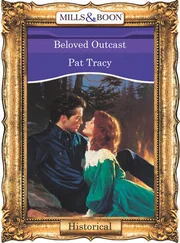"She said she was thirsty," said Paul D. He took off his cap.
"Mighty thirsty look like."
The woman gulped water from a speckled tin cup and held it out for more. Four times Denver filled it, and four times the woman drank as though she had crossed a desert. When she was finished a little water was on her chin, but she did not wipe it away. Instead she gazed at Sethe with sleepy eyes. Poorly fed, thought Sethe, and younger than her clothes suggested-good lace at the throat, and a rich woman's hat. Her skin was flawless except for three vertical scratches on her forehead so fine and thin they seemed at first like hair, baby hair before it bloomed and roped into the masses of black yarn under her hat.
"You from around here?" Sethe asked her.
She shook her head no and reached down to take off her shoes.
She pulled her dress up to the knees and rolled down her stockings.
When the hosiery was tucked into the shoes, Sethe saw that her feet were like her hands, soft and new. She must have hitched a wagon ride, thought Sethe. Probably one of those West Virginia girls looking for something to beat a life of tobacco and sorghum. Sethe bent to pick up the shoes.
"What might your name be?" asked Paul D.
"Beloved," she said, and her voice was so low and rough each one looked at the other two. They heard the voice first-later the name.
"Beloved. You use a last name, Beloved?" Paul D asked her.
"Last?" She seemed puzzled. Then "No," and she spelled it for them, slowly as though the letters were being formed as she spoke them.
Sethe dropped the shoes; Denver sat down and Paul D smiled.
He recognized the careful enunciation of letters by those, like himself, who could not read but had memorized the letters of their name. He was about to ask who her people were but thought better of it. A young coloredwoman drifting was drifting from ruin. He had been in Rochester four years ago and seen five women arriving with fourteen female children. All their men-brothers, uncles, fathers, husbands, sons-had been picked off one by one by one. They had a single piece of paper directing them to a preacher on DeVore Street.
The War had been over four or five years then, but nobody white or black seemed to know it. Odd clusters and strays of Negroes wandered the back roads and cowpaths from Schenectady to Jackson.
Dazed but insistent, they searched each other out for word of a cousin, an aunt, a friend who once said, "Call on me. Anytime you get near Chicago, just call on me." Some of them were running from family that could not support them, some to family; some were running from dead crops, dead kin, life threats, and took-over land. Boys younger than Buglar and Howard; configurations and blends of families of women and children, while elsewhere, solitary, hunted and hunting for, were men, men, men. Forbidden public transportation, chased by debt and filthy "talking sheets," they followed secondary routes, scanned the horizon for signs and counted heavily on each other. Silent, except for social courtesies, when they met one another they neither described nor asked about the sorrow that drove them from one place to another. The whites didn't bear speaking on. Everybody knew.
So he did not press the young woman with the broken hat about where from or how come. If she wanted them to know and was strong enough to get through the telling, she would. What occupied them at the moment was what it might be that she needed. Underneath the major question, each harbored another. Paul D wondered at the newness of her shoes. Sethe was deeply touched by her sweet name; the remembrance of glittering headstone made her feel especially kindly toward her. Denver, however, was shaking. She looked at this sleepy beauty and wanted more.
Sethe hung her hat on a peg and turned graciously toward the girl. "That's a pretty name, Beloved. Take off your hat, why don't you, and I'll make us something. We just got back from the carnival over near Cincinnati. Everything in there is something to see."
Bolt upright in the chair, in the middle of Sethe's welcome, Beloved had fallen asleep again.
"Miss. Miss." Paul D shook her gently. "You want to lay down a spell?"
She opened her eyes to slits and stood up on her soft new feet which, barely capable of their job, slowly bore her to the keeping room. Once there, she collapsed on Baby Suggs' bed. Denver removed her hat and put the quilt with two squares of color over her feet.
She was breathing like a steam engine.
"Sounds like croup," said Paul D, closing the door.
"Is she feverish? Denver, could you tell?"
"No. She's cold."
"Then she is. Fever goes from hot to cold."
"Could have the cholera," said Paul D.
"Reckon?"
"All that water. Sure sign."
"Poor thing. And nothing in this house to give her for it. She'll just have to ride it out. That's a hateful sickness if ever there was one."
"She's not sick!" said Denver, and the passion in her voice made them smile.
Four days she slept, waking and sitting up only for water. Denver tended her, watched her sound sleep, listened to her labored breathing and, out of love and a breakneck possessiveness that charged her, hid like a personal blemish Beloved's incontinence. She rinsed the sheets secretly, after Sethe went to the restaurant and Paul D went scrounging for barges to help unload. She boiled the underwear and soaked it in bluing, praying the fever would pass without damage.
So intent was her nursing, she forgot to eat or visit the emerald closet.
"Beloved?" Denver would whisper. "Beloved?" and when the black eyes opened a slice all she could say was "I'm here. I'm still here."
Sometimes, when Beloved lay dreamy-eyed for a very long time, saying nothing, licking her lips and heaving deep sighs, Denver panicked.
"What is it?" she would ask.
"Heavy," murmured Beloved. "This place is heavy."
"Would you like to sit up?"
"No," said the raspy voice.
It took three days for Beloved to notice the orange patches in the darkness of the quilt. Denver was pleased because it kept her patient awake longer. She seemed totally taken with those faded scraps of orange, even made the effort to lean on her elbow and stroke them.
An effort that quickly exhausted her, so Denver rearranged the quilt so its cheeriest part was in the sick girl's sight line.
Patience, something Denver had never known, overtook her. As long as her mother did not interfere, she was a model of compassion, turning waspish, though, when Sethe tried to help.
"Did she take a spoonful of anything today?" Sethe inquired.
"She shouldn't eat with cholera."
"You sure that's it? Was just a hunch of Paul D's."
"I don't know, but she shouldn't eat anyway just yet."
"I think cholera people puke all the time."
"That's even more reason, ain't it?"
"Well she shouldn't starve to death either, Denver."
"Leave us alone, Ma'am. I'm taking care of her."
"She say anything?"
"I'd let you know if she did."
Sethe looked at her daughter and thought, Yes, she has been lonesome. Very lonesome.
"Wonder where Here Boy got off to?" Sethe thought a change of subject was needed.
"He won't be back," said Denver.
"How you know?"
"I just know." Denver took a square of sweet bread off the plate.
Back in the keeping room, Denver was about to sit down when Beloved's eyes flew wide open. Denver felt her heart race. It wasn't that she was looking at that face for the first time with no trace of sleep in it, or that the eyes were big and black. Nor was it that the whites of them were much too white-blue-white. It was that deep down in those big black eyes there was no expression at all.
"Can I get you something?"
Beloved looked at the sweet bread in Denver's hands and Denver held it out to her. She smiled then and Denver's heart stopped bouncing and sat down--relieved and easeful like a traveler who had made it home.
Читать дальше











